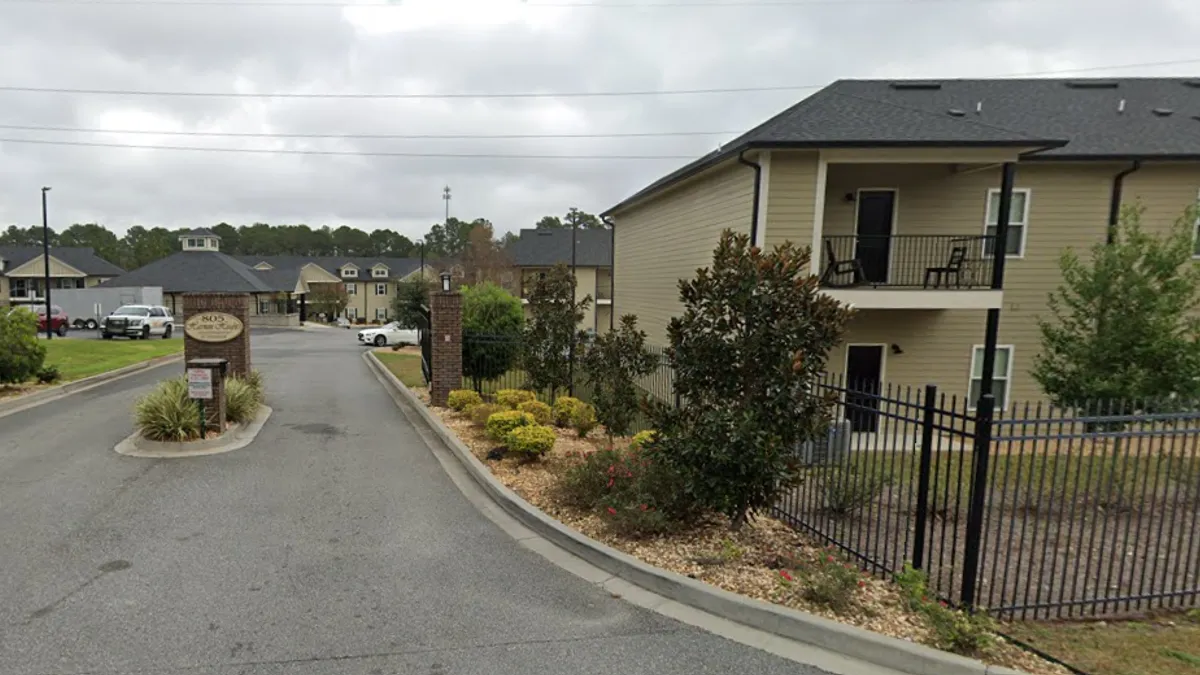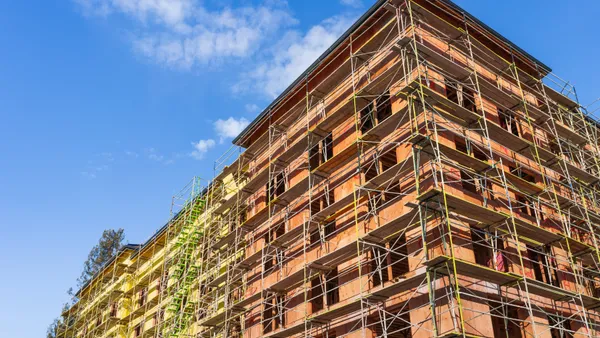Like many of its REIT peers, AvalonBay Communities saw seasonal pressures on new rents in the third quarter of 2024.
However, the Arlington, Virginia-based company may be in a better position than many of its public competitors through the rest of the year, according to one analyst.
“Unlike peers (excluding Essex’s), AVB's Q4 guide outlook implies blended rent reacceleration on easy comps,” wrote Haendel St. Juste, managing director of REITs for investment bank Mizuho Securities, in an analyst note earlier this month.
In its Q3 earnings report released earlier this month, AVB reported year-over-year increases of 1.2% for new rents and 5% for renewals to hit a 3.2% blended number. The company expects blended rents to increase in November and December on the strength of new move-ins.
AVB increased its 2024 core funds from operations by 2 cents to $11.04 and its same-store net operating income by ten basis points to 3.0% at the midpoint. “Third-quarter performance was strong, and our same-store portfolio is well-positioned heading into the slower leasing season,” CEO Ben Schall said on the earnings call earlier this month.
As with other REITs, AVB saw fundamentals vary by market as it set itself up to capitalize on demand growth next year.
Market report
In Q3, the rapidly improving Pacific Northwest posted AVB’s highest same-store revenue growth at 4.8%. New England followed at 4.2%, with the mid-Atlantic producing a 3.5% gain and the New York and New Jersey metro area at 2.8%.
For the year, the REIT has seen better performance out of Boston, New York City, the mid-Atlantic and Seattle on the West Coast, Sean Breslin, AVB’s chief operating officer, said on the earnings call.
Seattle has performed better than AVB expected this year, with firms like Amazon calling workers back to their offices. The REIT expects this trend to boost other coastal markets. “I'm not sure we felt the full impact of that yet across all of our coastal regions as people are sort of inching their way back to what they think is a normal state,” Breslin said.
AVB is still facing some headwinds with bad debt. In Los Angeles and the New York and New Jersey metro areas and Washington, D.C., and Maryland, it is above 2%.
However, Breslin sees an improving situation in those regions next year. “While we haven't yet completed our forecast for 2025, we expect continued improvement in underlying bad debt throughout the upcoming year,” he said.
2025 outlook
In 2025, AVB executives see strong demand to support revenue growth. In its established coastal regions, rent-to-income ratios are currently about 10% below where they were at the beginning of 2020, according to Breslin.
“We expect healthy job and wage growth,” Breslin said. “A financially well-positioned renter and relatively unaffordable for-sale housing alternatives will all support steady demand for our apartment homes in the year ahead.”
In AVB’s coastal markets, the spread between renting and owning a home is the widest AVB executives have seen. “This lack of affordable for-sale alternatives should continue to support a lower level of resident turnover and a greater propensity for new households to rent versus own,” Breslin said.
In those same coastal metros, AVB expects new deliveries to be 1.4% of existing stock in 2025, roughly 100 basis points lower than what's forecast for the Sun Belt, according to Breslin.
BY THE NUMBERS
| Category | Q3 | YOY Change |
| Total revenue | $671.5 million | 3.1% |
| Net operating income | $456.7 million | 2% |
| Operating expenses | $214.8 million | 5.4% |
| Funds from operations | $2.88 | 6.1% |
| Average rent | $3,033 | 3.2% |
| Economic occupancy | 95.6% | -10 bps |
SOURCE: AvalonBay
“Our same-store portfolio will further benefit from being roughly 70% suburban, where deliveries are expected to be roughly 1% of stock in 2025,” Breslin said. “Overall, we believe our portfolio is well insulated from the impact of excessive new supply in 2025.”
Click here to sign up to receive multifamily and apartment news like this article in your inbox every weekday.











